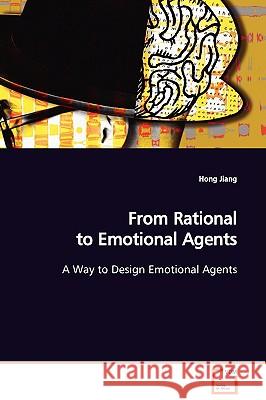From Rational to Emotional Agents A Way to Design Emotional Agents » książka
From Rational to Emotional Agents A Way to Design Emotional Agents
ISBN-13: 9783639110982 / Angielski / Miękka / 2008 / 152 str.
Can agents be intelligent without emotions? Is it possible to incorporate emotions into agents? If possible, how can we do that? Can we build high EQ (emotional quotients) agents which have better performance than rational agents? We believe that, whether for human-like or non-human-like agents, the effect of emotions on decision-making cannot be ignored, because high EQ agents can be built to have better performance in complex dynamic environments than purely rational agents. Taking into account the incompleteness of emotion theories and emotional differences among individuals, this book describes EBDI, a common architecture for emotional agents, which specifies a separate emotion mechanism within an agent. It reflects the practical reasoning process, and one can select and apply part of an emotion theory into the architecture as needed. Sample agents in Tileworld are presented and the results show that an EBDI agent can have better performance than traditional BDI agents. This book also describes how to design emotional agents (EBDI agents) in negotiation, which has been a subject of central interest in Distributed AI, economics and political science.











